Liubov-Olesksandra Bilinska (Semenko)
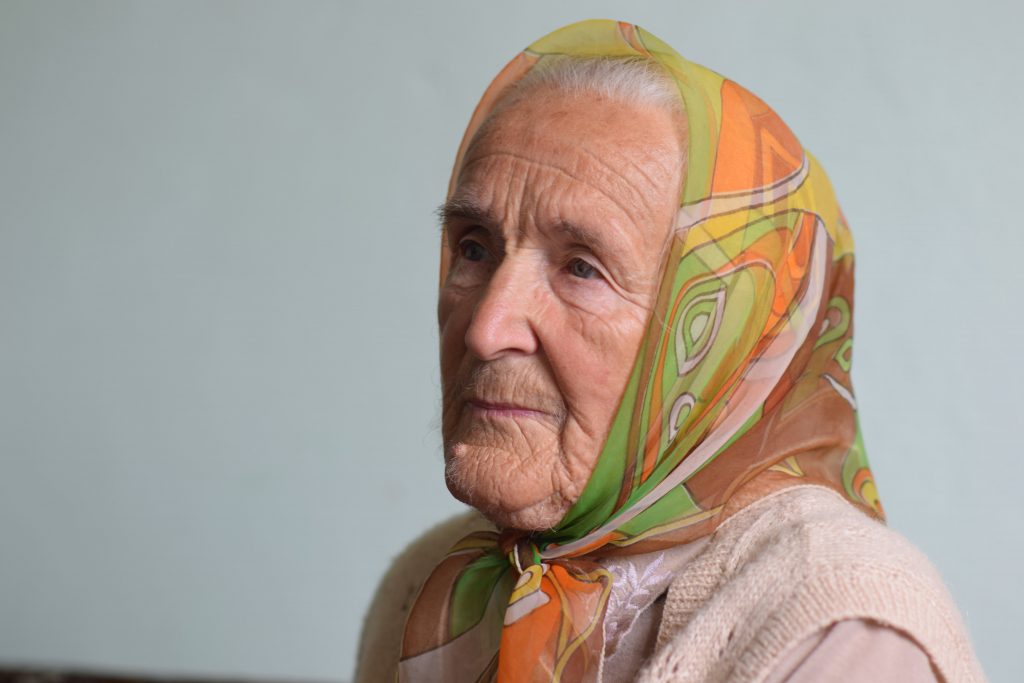
“Along the road young people were singing, then crying, then singing again”
Born on November 09, 1936 in Zozuli village, Zolochiv district, Lviv oblast to a family of well-off peasants. Her father was Ivan Onufriyevych Semenko, her mother was Paraskoviya Vasylivna Semenko, she had an older brother Yaroslav (born in 1922) and a sister Zenoviya (born in 1932).
When Liubov-Oleksandra was eleven, she and her family were deported to Prokopievsk (Kemerovo region, Russian Soviet Federative Socialist Republic) in October 1947 for her brother’s participation in UPA [the Ukrainian Insurgent Army]. The woman returned to her homeland in 1958.
First violence experience
Liubov was 11 when they were taken to Siberia. She recollects that Ukrainians and Poles were living in peace in the village before the war, and Jews were running a tavern. Tragic events started all of a sudden, and the first experience was violent:
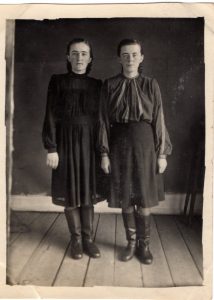
“I remember a Russian soldier killing a grandma… When the war started, there was a large cellar under the house, the size of half the house. We were hiding from shelling there. (…) If that bomb had hit the house, we all would have been dead. The God saved us and the bomb fell in the garden. There were three families, the Nalyvaikos, the Bruyaks and the Bezpalkos, we put some straw on the floor and were sitting there, for there was a frontline nearby, and a Katiusha [Soviet multiple rocket launcher], and there was fighting, so we were hiding in the cellar”.
(photo: Liubov-Olesksandra with her sister, Zenovia)
An old woman stood on the porch trying to protect children: “Mister, mister, please, I’m begging you, don’t go in, there’re small children there, they will get scared, don’t go in”. But the soldier pushed her, she fell, hit her head and died.
About deportation
“There were rumours: they will start deporting people. But whom and how? Well, we more or less thought it was going to be us because of my brother. (…) He was an UPA member, a resistance fighter”.
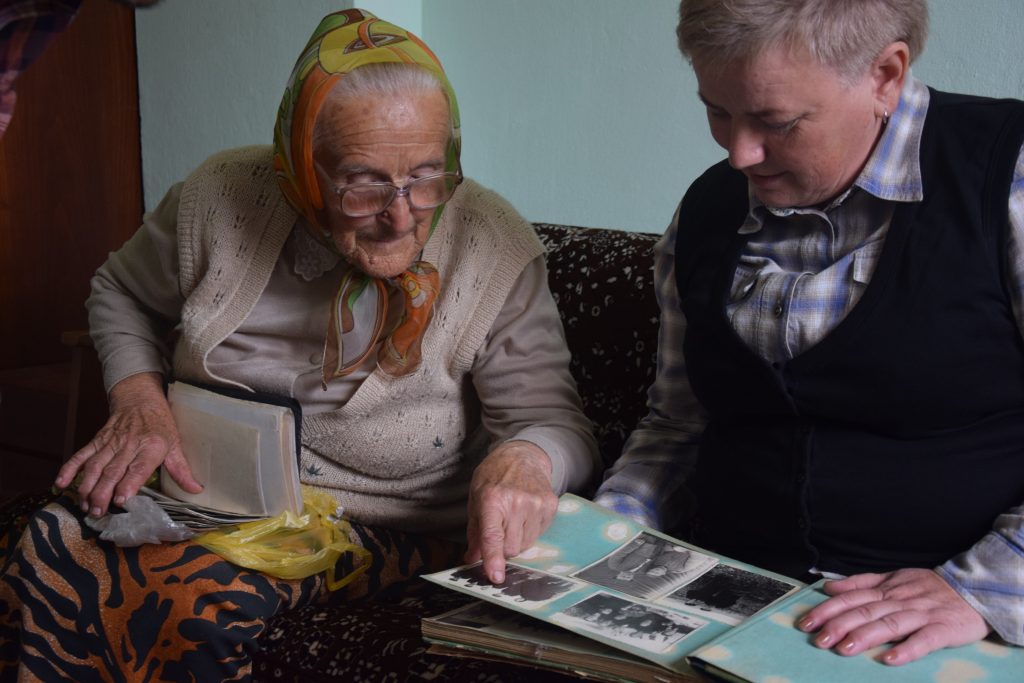
The woman recollects the wagon used to transport around eighty people/ There were tiny grated windows and no toilet.
A guard said: “Cut a hole in the floor”. When the hole was cut (because the train was moving and there were axes, so people cut the hole), we could breathe. For when there was a bucket, with the wagon moving and shaking, it was awful”.
There were not only Liubov’s family in the wagon, but many neighbours and acquaintances too. She remembers that along the road young people were singing, then crying, then singing again. After several weeks of transportation they were guarded no more, as there was nowhere to run.
Living in the special settlement
The exiles got to Prokopievsk town in South Siberia (Kuznetsko-Prokopievsk district, Kemerovo region, Russian Soviet Federative Socialist Republic) first. Merchants came in and brought entire families to work in coal mines or state-owned farms. People were lodged in mud-hut barracks with double-decker plank beds:
“These were barracks, the roof and windows were above the ground, and the rest was underground. The barracks were very long, the length of our house plus the distance to over there till the garden, really long. There were plank beds in the barracks, double-deckers. One floor for smaller families, and larger families got two… There were four of us, so it suited us well.”
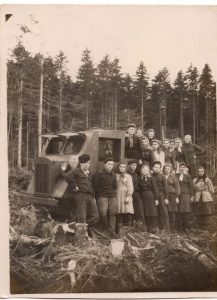
The rest, like Liubov and her family, were transported even further, to Leninsk-Kuznetsk, where they stayed. Living conditions were horrific – barracks for several families, crowdedness, lice and unbearable smell. The father was working as a coal miner, and the 15-year-old sister was a horse handler (she took care of the horses that pulled out trolleys with coal). Ukrainians were respected, for they worked well. However, they never got managing positions, only blue collar ones. Relations between people were far from perfect either:
“There was a priest, he also spoke Russian and […] he started saying that Bandera followers in Ukraine are killing our people. That was the propaganda he was carrying out. We came once, out of curiosity.
That’s why the Semenkos, together with other families, were praying on their own and listened to the holy mass broadcast on Vatican radio. There was no Ukrainian church, but people followed religious traditions. There were some informers among their own people, but bit by bit they started getting along. Still, stigmatisation remained an integral part of life in exile:
“When they were deporting us, we were Bandera followers; then, when we met Muscovites, they called us Khokhols [offensive term for an Ukrainian]. So we lived with it”.
Young Liuba was working at a military factory where she met her future husband.
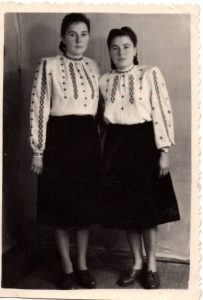
“Then they decided: we’ll have to sign to stay here forever. Everyone was crying: “How is it, forever?” Some were wiser, so they said: “People, nothing is forever”. But still, a Muscovite came and we were standing in line and had to sign forever. Later they allowed us to sign off and I left the special settlement”.
When Liubov-Oleksandra returned to Ukraine, she found that nothing but memories remained from the house or family property.
The story of Liubov-Olesksandra‘s sister can be read at the following link:
Recorded by: Andrii Usach
Where: Zozuli, Zolochiv district, Lviv oblast, Ukraine
When: 26 September 2019
Recording processed by: operator Andrii Voloshyn
Project: “Memory of Ukraine”
Institution: Memorial museum of totalitarian regimes “Territory of Terror”
Biography prepared by: Olha Mukha
